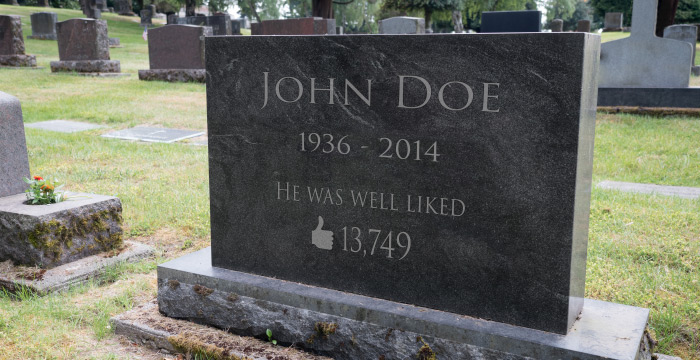Bob has written series of CEO and career lessons learned that he will share on this website by a rotating sequence. You can access the four articles currently posted, below. Please feel free to comment on them in the ‘Contact' section of the website.

The Slippery Slope of Integrity
When you see lists of the most important personal characteristics in a CEO (or senior executive), the most common criteria is impeccable integrity. Integrity is more important than past performance and/or future vision, and it is easy to understand why. Trust is a huge factor in granting responsibility and fiduciary obligation. Most CEOs have little direct daily oversight and must be trusted to set the tone of integrity for all others in the company. The consequences of dishonesty can destroy a brand reputation, and eventually, the entire enterprise. What is integrity? Integrity is far more complex than the dictionary definition of “adherence to ethical and moral principles.” Each time I find myself losing trust in someone, I ask myself, “are the symptoms an indication of incompetence or a lack of integrity?” The actual outcome might be the same, but in my mind, a flaw of integrity is a more unforgivable sin. And rightfully it should be, because integrity issues result in problems continually being repeated and lack of a learning curve. Integrity, or lack thereof, is an embedded issue that is extremely hard to change. My “integrity ladder” rates this trait in executives from fatal to marginal. Stealing or direct lying for personal gain: This is a no-brainer—there is no reason to spend a large amount of time trying to figure out how to fix this issue even in the most talented individuals. Regretfully, there are organizations that value the individual’s results more than this moral principle; however, it eventually catches up with them. When Justice Department investigators create sentencing guidelines, they often rate ‘tone at the top’ highly, which is the executive tolerance to dishonesty in return for profit. Not only should you avoid promoting this behavior, […]

Large Jobs Can Kill You
In the consulting services industry, companies are made up of a combination of a network of local offices doing recurring activity with repeat customers, with an occasional overlapping potential to perform larger and ‘one-off’ jobs. As companies grow in scale, they depend more and more on winning and delivering large jobs even if they come from different offices and clients. Large jobs are longer in duration and have more intense manpower loading that leads to higher chargeable time, and thus, much higher profit. Depending on the allocation process, they also absorb a disproportionate level of overhead from the regional and corporate levels. If the company includes network of offices spread out geographically, one of the key missions of local offices is to detect and help sell large jobs through local relationships and knowledge. But those large jobs only come along occasionally for any given office. Therefore, the more geographical offices a company has, the greater probability of finding the next large job. For larger jobs, companies often combine known local trust relations with corporate level delivery capability. Many clients would prefer to give their work to local qualified companies and known client server relationships, in order to reduce performance risk. Branch offices, which routinely live off small and medium projects, occasionally discover and bring projects to the attention of the corporation that are above their usual scale to perform. In fact, a common strategic role of the corporation’s branch offices is to cover their costs with routine business and serve as “watch towers” for larger jobs. When a large project is detected, the marketing resources, expenses and required systems are too much for the branch office to handle, resulting in corporate having to step […]

Leadership Diseases and Their Cure
Two executive leadership management styles I am occasionally requested to consult on are by-products of the base motivation of the individual leader. The problematic symptoms are very different, and one needs to address the ‘disease.’ Unless you can get the executive to understand their particular disease and have the desire to want to modify the behavior, you cannot mitigate the symptoms. Popularity The first disease is an underlying need to be popular while supervising people. This need is rarely admitted, but clearly manifested by actions. Executives that want to be liked have trouble making timely decisions that would upset anyone. They even go so far as to physically disappear so that decisions are delayed or solved by others. These executives rationalize that time will cure the negative emotions a decision may cause. Delayed response may even make a needed, yet unpopular, decision immaterial as it becomes stale. This is not a person who makes principled-based decisions, but one who tries to come up with the most diplomatic answer that puts them in a good light. Their decisions are made with their interest of staying popular in mind, without regard to consistency or what’s best for the company. An executive whose personality requires approval is vulnerable to one-on-one lobbying resulting in decision reversals. I often hear when dealing with these popularity seekers, is that there is a competition to be the last lobbyist in order to be the most influential before a critical meeting. Lobbyists learn that if you cannot get the leader to a decision you want, the fallback is to request to freeze the decision to another meeting. The executive concludes that it is better to have a late decision rather than an unpopular […]

Turning Fear into Success
About six months after I stepped down from being CEO of a global company for nearly a decade, someone asked me how I was doing. I said the first thing that popped into my mind: “I am celebrating sleeping again.” It was true. I was sleeping at least eight hours a night for the first time in a very long time, and it felt very different. My burden of fearing failure was dramatically lowered with the absence of the responsibility that comes with being in that position. On the other end of the spectrum, I was coaching another CEO. I asked him how he slept, and he answered, “I have always had no trouble sleeping. Frankly, I sleep like a baby.” Eventually his company stalled, and in short order, he decided to sell his business before its value totally collapsed. Another client requested me to talk to a promising lieutenant who seemed de-energized and unmotivated. I asked the lieutenant how he slept, and he said: “Great.” In both this and the previous case, I was stunned at these individuals’ answers. I asked myself how they could not worry at night when they had such a responsibility to make things happen? Yet, looking back, I too, was always fearful that my subordinates were not worried enough! It made me ponder why I felt my burden of the office was so heavy 24 hours a day. I was not frozen by fear but instead motivated by it. Was fear actually an important success driver? Why did it not have the opposite reaction by freezing me in my decision making? Since my childhood, I feared failure. It manifested itself in worry and a resultant effort not to shame […]

